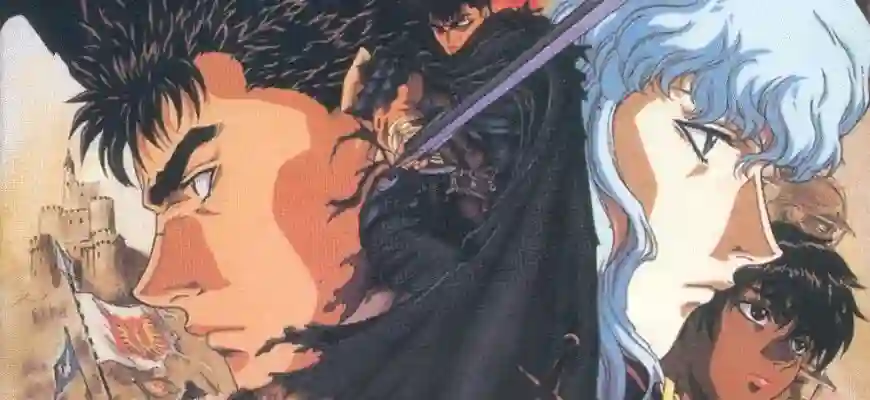In the realm of literature and entertainment, the dark fantasy genre has undergone a profound transformation over the years, with one seminal work standing as a pivotal point in its evolution – Kentaro Miura’s magnum opus, “Berserk.” This iconic manga series, which ran from 1989 until Miura’s untimely passing in 2021, left an indelible mark on the dark fantasy landscape, reshaping the genre in its wake.
Before Berserk: The Origins of Dark Fantasy
Before delving into the post-Berserk landscape, it’s crucial to understand the genre’s origins and the state it was in prior to the manga’s inception. Dark fantasy, as a subgenre, has roots in classic literature, drawing inspiration from gothic novels, folklore, and mythologies. Early works like Mary Shelley’s “Frankenstein” and Bram Stoker’s “Dracula” laid the foundation for the exploration of darker themes within fantastical settings.As the 20th century progressed, writers like H.P. Lovecraft and Robert E. Howard further expanded the boundaries of dark fantasy with their cosmic horror and sword and sorcery tales. However, the genre was still finding its footing and lacked the cohesive, mature narrative that would later become synonymous with Berserk.
The Berserk Revolution: Redefining Dark Fantasy
Kentaro Miura’s Berserk, which began its serialization in 1989, marked a turning point for dark fantasy. The series masterfully blended elements of medieval horror, existential philosophy, and intense character development, setting a new standard for the genre. The protagonist, Guts, faced not only grotesque monsters but also the profound darkness within humanity itself.Berserk’s impact on dark fantasy can be likened to a seismic shift. Miura’s intricate storytelling and visceral artwork elevated the genre to new heights. Themes of betrayal, trauma, and the struggle for identity resonated deeply with readers, transcending cultural boundaries. The dark fantasy genre was no longer confined to niche audiences but became a global phenomenon.
Post-Berserk: A New Era of Dark Fantasy
Following Berserk’s influence, the dark fantasy genre underwent a renaissance, with creators across various mediums drawing inspiration from Miura’s magnum opus. The newfound emphasis on intricate character development, morally gray protagonists, and mature storytelling became hallmarks of post-Berserk dark fantasy.Novelists, filmmakers, and game developers embraced the gritty realism and psychological depth that Berserk introduced. Works like Joe Abercrombie’s “The First Law” trilogy, the “Dark Souls” video game series, and the television adaptation of “Game of Thrones” all reflect the impact of Berserk on their respective mediums. These creations share a common DNA with Miura’s masterpiece, exploring the darker facets of the human psyche within fantastical worlds.
The Legacy Continues: Beyond the Eclipse
Tragically, Kentaro Miura’s passing in 2021 left many fans mourning the loss of a visionary storyteller. However, Berserk’s legacy persists, with the impact of the series still reverberating throughout the creative landscape. The dark fantasy genre, now seasoned by the grim and profound storytelling of Berserk, continues to evolve.Creators are not merely imitating Miura’s work but are building upon its foundation to explore new narrative frontiers. The essence of Berserk lives on in the exploration of complex characters, morally ambiguous choices, and the blending of horror and fantasy elements. In this post-Berserk era, dark fantasy has become a space for introspective narratives that challenge societal norms and delve into the human condition.
Challenges and Critiques: Navigating the Shadows
While the post-Berserk era has seen an undeniable surge in the popularity and quality of dark fantasy works, it is not without its challenges. Some critics argue that the genre runs the risk of becoming formulaic, with creators relying too heavily on the grim and brutal aspects introduced by Berserk. Striking a balance between homage and innovation is crucial to ensuring the continued vitality of dark fantasy.Additionally, there is a responsibility to handle mature and intense themes with care, avoiding gratuitous violence or darkness for shock value alone. The challenge lies in maintaining the profound storytelling that defines the genre while pushing creative boundaries to offer fresh perspectives.Conclusion:
As we navigate the post-Berserk landscape, the dark fantasy genre stands as a testament to the enduring impact of a single work on an entire creative medium. Kentaro Miura’s legacy lives on in the hearts of fans and within the pages of Berserk, but it also extends beyond, shaping the very essence of dark fantasy.The genre, once a niche corner of literature, has grown into a diverse realm of storytelling, exploring the depths of human nature against fantastical backdrops. As creators continue to draw inspiration from the shattered sword and the Eclipse, the future of dark fantasy promises to be as complex, challenging, and captivating as the world Miura crafted in Berserk.



Leave a Reply